Creators & Entrepreneurs
14 Scalable Business Ideas for 2025
These businesses have some serious scale. Find the one that's right for you!
Author
Mighty Team
Last Updated
September 30, 2025

Building a business that scales can be a challenge, but it’s oh so worth it. If you’re putting in the time and effort to start a business, why not choose one that scales? Often it doesn’t take any more work than choosing a non-scalable business.
But the question is: what is it that actually makes a business scale? And what type of businesses scale?
That’s what we’ll cover in this article. We’ll focus on online businesses–since they’ve opened up amazing potential for scale–and explore some possibilities.
In this article, we’ll cover:
What a scalable business is.
The secrets of a scalable business model.
14 scalable business ideas.
Try the platform with the most $1 million communities.
What is a scalable business?
A scalable business can increase its customer base and revenue at a faster rate than it increases its costs. It can handle serving more customers and bringing in more revenue. This creates a recipe for enormous growth, because if you can expand revenue faster than expanding costs–theoretically–the sky is the limit.
Why do you want a business that scales?
It’s the same amount of work. Any business owner only has so many hours in a day. Choosing a scalable business often means you can earn more during those hours than if you’d chosen a limited business.
You can help more people! A scalable business lets you serve more customers–not just for the sake of more revenue (although that’s great)--but because that’s why you got into the business to begin with!
You’ll have more revenue. Having more revenue to spend on product, expansion, research, and so many other things frees up your business to focus on what it does best. Cash-starved businesses often end up looking inward and cutting.
What is a scalable business model?
The truth is, most businesses are scalable–to some extent. Even the businesses that are toughest to scale–for example, service businesses or a 1-person consulting business have ways to scale. If you’re a hairdresser, you can only cut so much hair in a day. That’s a tougher business to scale. But you could still look at renting out a second chair, training another hairdresser, automating or outsourcing some of your admin tasks so you can focus on serving more clients, and more!
BUT you’ll still hit a point where you can’t scale anymore.
So even though every business can potentially scale, some businesses scale much better and further than others can.
But there’s no one scalable business model. It takes creativity and strategy to understand how to scale your business.
And sometimes, scaling strategies depend on your stage of business. Something that might not be right for you at the moment might be a game-changer next year. Or, the market could crash and take away your customers’ buying power. So it could be about finding the right way to scale at the right time.
To build a scalable business model, you need to understand how businesses scale and figure out which applies to you.
So here are some of the many ways businesses can scale:
Economies of scale: This is a big term, and you might have heard it before. The economist Alfred Marshall gets the credit for inventing it. Here’s what it means: the more you produce something, the cheaper it gets to produce it.
Let’s say you’re building a chair. You need to buy tools, materials, wood, etc. Maybe it costs you $200 to build that chair. If you decide to build a second chair, it would cost less. You already have the tools. Maybe you have materials left over (e.g. screws, extra wood). So maybe it costs $150 to build a second one.
Now, let’s say you want to build 100 chairs. You have the tools. Maybe the materials cost less–you buy in bulk. Maybe you have machines to do some of the work again and again. Maybe you hire an employee to help you. That’s economies of scale. The more you produce something, the less it costs to produce an individual unit.
The benefit is even better with digital products.
Technology: Technology produces scalable businesses. As technology gets better, businesses get more scalable.
Think about a drill. Where woodworkers once had to turn screws and bolts or drill holes by hand, the electric drill saved thousands of hours of work.
That’s a simple example, but it’s something we see again and again across the economy. From robotic arms to computer code, technology can help businesses scale. And that leads us to…
Digitization: This is a type of tech, but it deserves its own spot. We now live in a world where digital products can produce scalable businesses like never before.
Imagine a corporate training business in the 1950s. The trainer would need to travel to each business and deliver a course. Now, a corporate training course can be run virtually or even pre-recorded. The result is massive scale from digital products that’s created a new economy.

Standardization: If you look at the genius of Henry Ford, it’s about standardization. Ford used the assembly line to perfect standardization and make manufacturing automobiles easier.
Each person on the assembly line specialized in doing one thing again and again. They produced a standard part that was always the same. And the result was faster productivity and better cars.
Automation: For decades, automation has been pushing business scale forward. If you’ve ever nerded out with the show “How it’s Made,” you’ve seen examples of massive factories in action–producing products with automation.
Automation always gets better and better. Take the program Zapier. It helps you automate software processes. For example, you could automate a sign-up form from a website to add the customer to a list, send an invite to a community, and trigger an email sequence.
Instead of needing someone to do it manually, you can automate it. And with AI, automation is just getting better.

Business infrastructure: As businesses grow, they can create the business infrastructure to scale more. For example, let’s say a company buys a delivery truck. That one truck can deliver thousands of packages and open up new customers.
Maybe they grow to have a fleet of delivery trucks, all on an automated delivery system. That delivery system means they can keep growing and scaling. These kinds of systems work to make businesses more efficient and to help them scale.
Productization: Imagine you run a service-based business. Let’s say you’re a coach–working 1:1 with clients. You need to find a way to turn that service into a product to scale.
It might be through a coaching package with a course, or a workshop that takes multiple people at once. For service-based businesses, productization is one of the best ways to scale.
Intellectual property: It isn’t talked about much, but intellectual property (IP) can be part of scaling a business. That’s because if your business owns a patent or a trademark and you license it, you can grow without doing any additional work. Someone else scales your business for you.
This is the basic idea of a franchise, where your brand grows by selling franchise rights and someone else owns and operates the business.
Customer acquisition and retention: Finally, businesses can scale by scaling customer acquisition and retention. For example, you can build systems to help you acquire customers. Let’s say you build a really good website, with lots of good content for Google searchers to find.
If done well, that one project could attract thousands or millions of new clients. You might use a CRM platform to scale customer experience. These are ways to get scale from your customer interactions.
These are not the only ways to scale businesses, but they’re some of the most common.
If you look at many of the most successful companies, you’ll see that they’ve used several of these tactics to achieve scale and profitability. And you can use it for your business too.
Scalable vs. traditional small business
Traditional small businesses usually have predictable limits. The store can only serve as many customers as come through the door (limited market). They can only sell as many products as they have (limited product). Look at a local bakery. If they can only bake 100 loaves a day, that’s all they can sell. If only 20 customers come in, they might be throwing some away.
And service businesses have these too. The plumber can only be at so many houses at once.
Scalable businesses remove some of these limitations. For example, the bread factory has more scale than the bakery.
But if that baker decides to teach a course online about making bread, what’s the scale? Endless. They could potentially sell the product millions of times with the main limit being whether or not you can find that many students. Or maybe that baker licenses their name to other manufacturers or bakeries. That’s another way to get scale.
Pitfalls & plateaus to avoid
Any business can scale, but every business hits limitations as they do. Here are common plateaus when scaling a business.
Growing too fast: It seems unthinkable, but when revenue explodes without the proper infrastructure in place it can hurt quality or burn out the founder!
Systems gaps: Outdated processes can kill a business as it grows. Things like data entry or customer tracking can become a nightmare if you don’t implement systems.
Quality control: Growth without maintaining quality can kill the reputation. You’ll need to learn to keep doing the same things well at scale.
Cash flow crunch: Balancing the cashflow–especially for a business with high overhead–is a tough nut to crack. If you’re pouring money into production or ads up front, you need some cash flow to run the day to day.
People mismatches: As you scale, your people will become the most important asset you have. Hire well and carefully.
Founder bottlenecks: This is the most common. A founder becomes the bottleneck in their own business, for example, by micromanaging everything or trying to do things they don’t do well. Again, hiring good people and trusting them is the only fix!
Scalable business examples
McDonald’s: McDonald��’s started as a little burger stand in San Bernardino, with the McDonald brothers. They created a system for producing hamburgers–fast food–in a world where ordering a burger took half an hour.
They could make them fast and efficiently–especially with a system. That’s scale. But the restaurant chain also scaled by franchising and–eventually–by ingeniously owning the land on which McDonald’s restaurants were built.
The story of Ray Croc–the first CEO–was dramatized in the movie: The Founder.
Facebook: Facebook (now Meta) has had an incredible scale. Facebook provides a content creator platform, built on the connections with people you know (and sometimes those you don’t know).
Social media is often a ridiculously scalable business model because it relies on user-generated content; basically, Facebook doesn’t need to create the content that users show up to see.
Netflix: Unlike Facebook, Netflix does create and purchase content for its platform. The users then pay to access it as a subscription–and Netflix lets members pass the paywall to view shows and movies.
Netflix is worth around $250 billion as of writing this post.
Amazon: Amazon is another example of a limitlessly scaling tech company. Initially a bookstore, Amazon provided an online marketplace software that grew with the network effect–it gets more valuable with each user.
It grew into selling pretty much anything, plus spin-off businesses like AWS. It’s worth almost $1.8 trillion as of writing this. Amazon has become a master at scaling with automation too, from smart warehouses run by robots to predictive analytics at the checkout and for inventory.
General Motors: This global auto company benefits from economies of scale with large scale production of cars, purchasing materials, and more.
But we also see economies of scale at work when GM builds a new car (they can use existing parts they’re already manufacturing) or when GM moves a factory to a “cheaper” country. These are all things GM can profit from because of its size.
Qualcomm: Is a multinational you might not have heard of. It creates semiconductors and microchips, but also owns a lot of the IP around 5G networking.
Its scale comes from other companies adopting its IP and products for their own manufacturing.
How to know if your product idea has scalability potential
Products that have scale potential can leave some clues! Here are some common indicators for a scalable product.
It can be manufactured easily and quickly or licensed for other people to manufacture. Bonus points if it’s digital.
Costs go down the more you manufacture (remember the chair example above?)
It’s information-based and can therefore be turned into a book, online course, event, etc.
The market for your product is large and/or growing.
The product has a network effect–it gets more valuable as people use it (e.g. a social media platform or online community).
It has high margins or low costs to sell (like a product in an online store).
You see high retention, customer word of mouth, and repeat business.
You own and can defend a competitive advantage (e.g. a unique patent or partnership) people can’t easily replicate.
You can repeat and systematize key processes (e.g. training a sales associate to repeat a sales pitch).
Scalable business ideas
As we said above, pretty much any business can be scaled. So if you’ve already got something you’re passionate about building, forget this list and figure out how to scale that thing.
But let’s talk about scalable business ideas–and we’re going to focus on scalable online business ideas. Some of these are also profitable AI business ideas, or incorporate AI elements into them.
The reason is simple. If you look at businesses built online, they offer some unique scaling potential.
It’s the magic of digital.
The biggest hotel company has no properties (Airbnb).
The biggest cab company has no cabs (Uber).
The biggest bookstore has no books (Amazon).
And the biggest TV channel up until recently didn’t make its own programming (Netflix).
The power of digital business is that the platforms that connect people and things have become more valuable than the things themselves.
So while there are a lot of great potential business ideas you can start IRL, here are some scalable online business ideas we love.
1. Communities
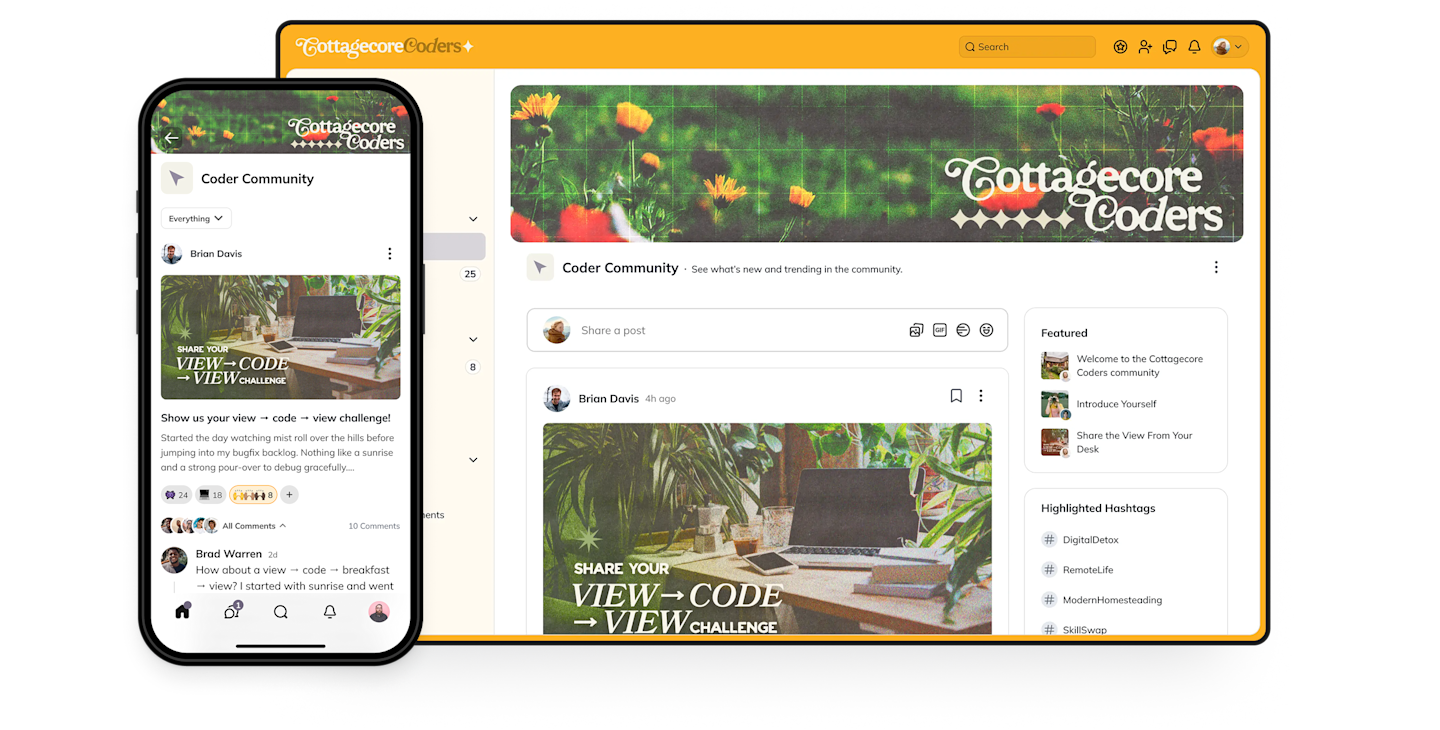
Imagine a digital business model built on all the things that work about the social media giants–but built around dedicated members who pay to belong. That’s a community, and a community flywheel has been named the business model to watch for in the 2020s.
A community runs on members. Members who care enough to show up, make friends, post, discuss, and belong. And they pay for it.
Membership communities are incredibly scalable thanks to the magic of a community platform. It gives you the software to build the community and collect membership payments, and you can repeat this for hundreds and thousands of members.
We’ve seen communities grow to 6-, 7-, and even 8- figure businesses. And like a social media platform, communities thrive on user-generated content–meaning the Host’s work doesn’t grow at the same rate as membership.
And communities can be combined with courses, events, private groups for coaching or masterminds, and more.
2. E-commerce
The success of Amazon has shown that an e-commerce business isn’t a fad or a niche–it’s just the future of how we shop. E-commerce is projected to hit $3.6 trillion in value in 2024. And while every large company like Walmart and Target are shifting their operations to include major e-commerce focus, e-commerce is super accessible for every business-small or large.
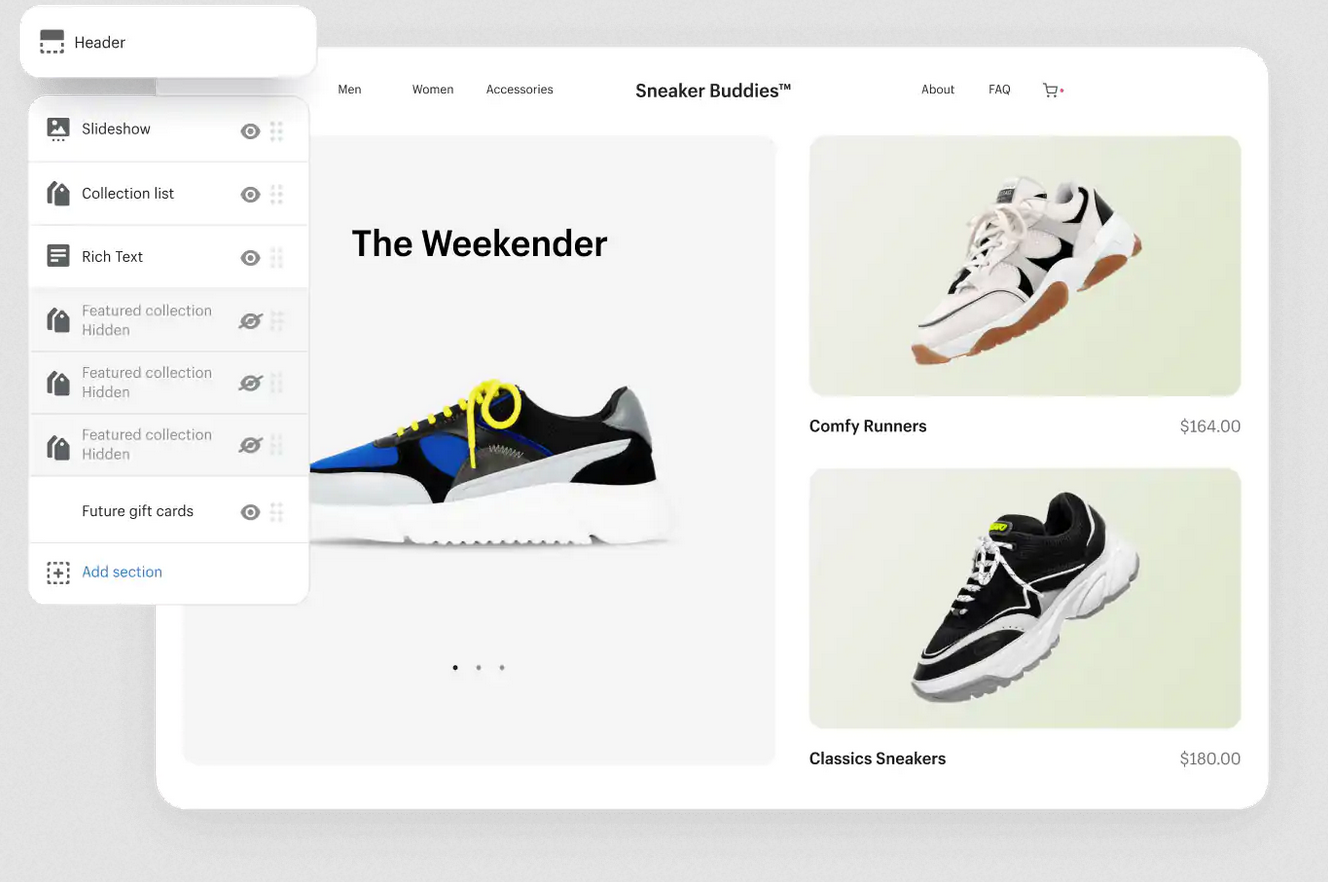
Major platforms like Amazon and Alibaba make it easy to sell, or there are more niche platforms like Etsy that can become a seller’s main bread and butter. Or, maybe you want to use a platform like Shopify and build a shop that you actually own.
E-commerce creates scale in itself, simplifying the parts of a legacy business so that one person can run it (advertising, merchandising, purchasing).
But e-commerce can create even more scale with digital products. For example, Etsy is a marketplace for creators. Often these are physical creations–which limits the scale (if you’re selling crafts that you make, you can only make so many). But with things like printables, creators can scale their businesses by either letting customers print their own or by connecting their Etsy shop to a printing service like Printify.
3. Digital courses
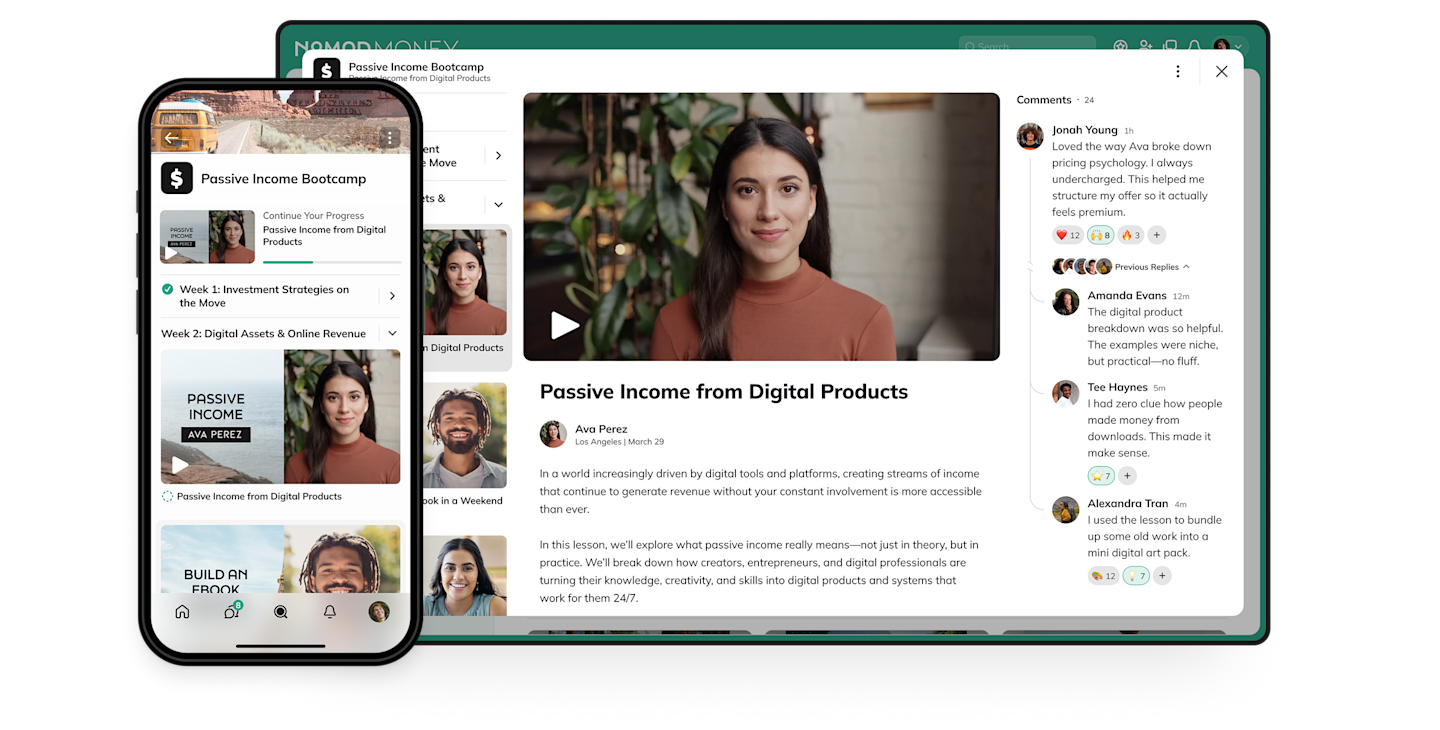
Digital courses are the original scalable product online, with a projected value of $62 billion by 2027. The potential scale of e-learning through online learning platforms has been shown again and again.
It’s real. The ability to package knowledge and share it with thousands makes for ridiculous scale. For example, Yale University’s famous happiness course has been viewed millions of times.
Prerecorded courses have the most scale. You can build an asynchronous course and sell it again and again. But that’s not to say that live online courses don’t have scale either–they do. With a virtual instructor led course you can still teach live to thousands of people–you’re not limited by the physical capacity of a building or chairs.
There’s no question that digital courses scale. But with so many courses out there, marketing your online course can be a bigger challenge than creating one.
But if you can find the sweet spot, a course business can definitely be lucrative.
4. Content-business
Content creation is a majorly scalable business, but there’s a catch. The majority of content creators don’t earn much–so much so that The New Yorker called the creator economy "the new gig economy." So with only 12% of full-time creators earning over $50,000, it’s got a dark side.
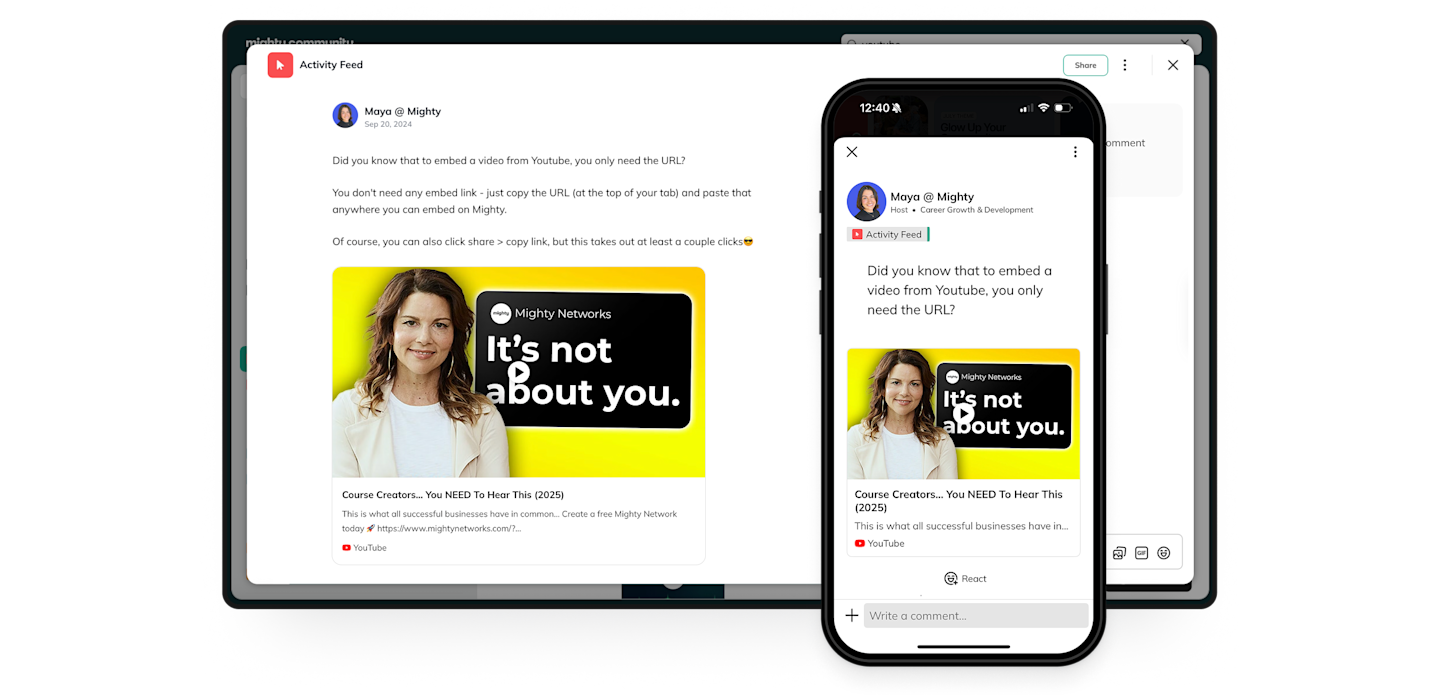
But it’s undeniable that some content creators have done well–or that content creation businesses have potential to be wildly scalable.
The trick will be first of all to create great content that gets attention. If you’re only monetizing with ads, you will probably need millions of views to earn a living from content.
That’s a little depressing, but it is possible.
Thankfully, there’s a better way. There are lots of people earning a great living from smaller audiences. The trick is to choose better methods for monetizing content.
Once you have a following, any of the things on this list can be used for content monetization.
Find ways to monetize content that feel authentic and fit your brand–all while maintaining scale–and the sky’s the limit.
5. Software
As we’ve been dancing around the idea of platforms that scale value, know this; there are still lots of great software businesses waiting to be built.
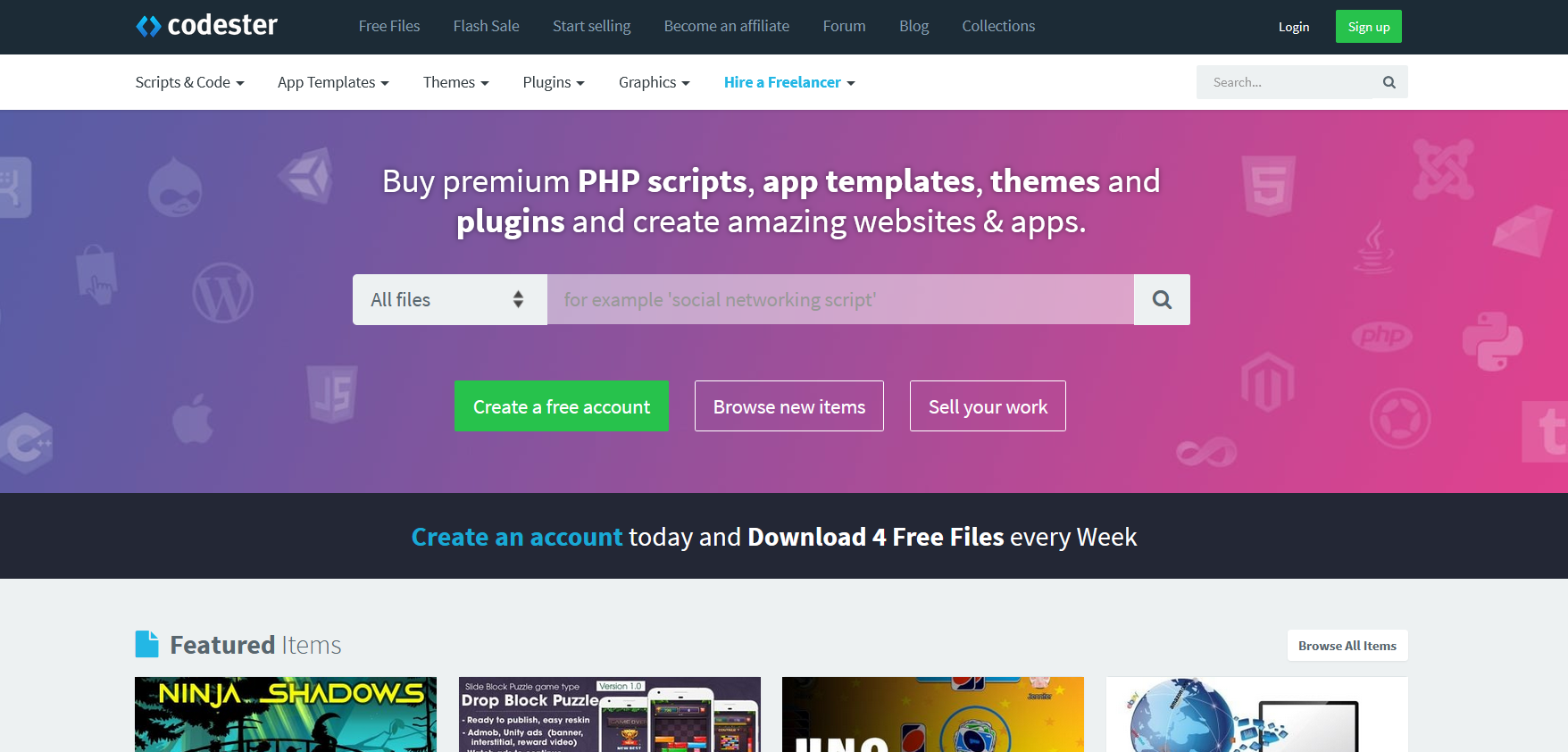
Software that solves real problems that people or businesses have can create amazing scale. You can even turn software into a recurring revenue business if it’s sold on a recurring pricing model–which most SaaS software is.
By creating the software to let others do the things they want to do, you’ve got the recipe for a wildly scalable business. Look at Monday.com or Atlassian or Quickbooks and you’ve got software that solves real problems for its users.
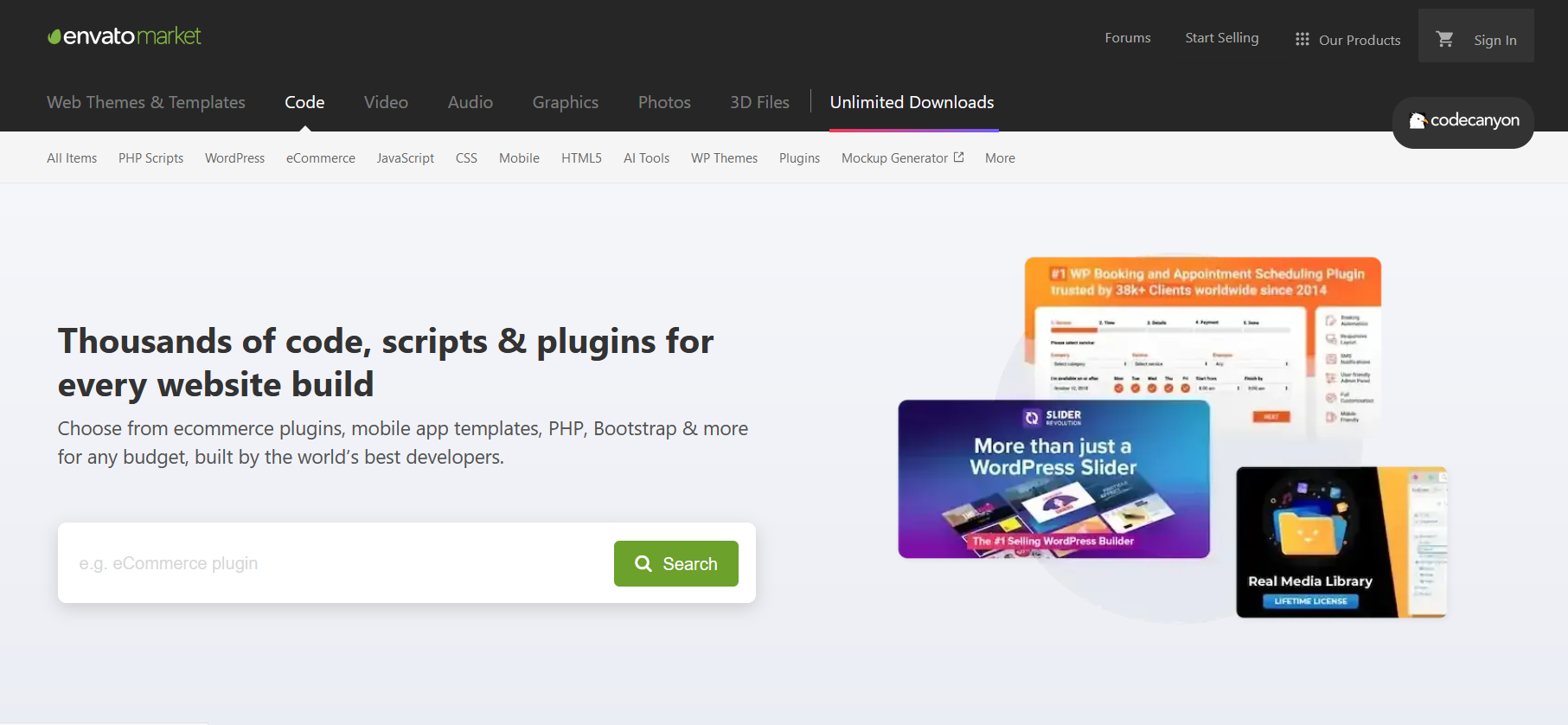
Look at the challenges–physical or digital–that business or people face everyday. How could a piece of software make their lives easier?
6. Podcasting

Podcasting is a great scalable business. We’re living in the age of podcasts, with big names like Office Ladies, Smartless, Joe Rogan, Armchair Expert, lighting up the Spotify charts.
Podcasts are ridiculously scalable, AND there’s a ton of software to make it easier–things like Podbean and Descript. We have an awesome guide to starting a podcast on our YouTube channel!
7. Apps
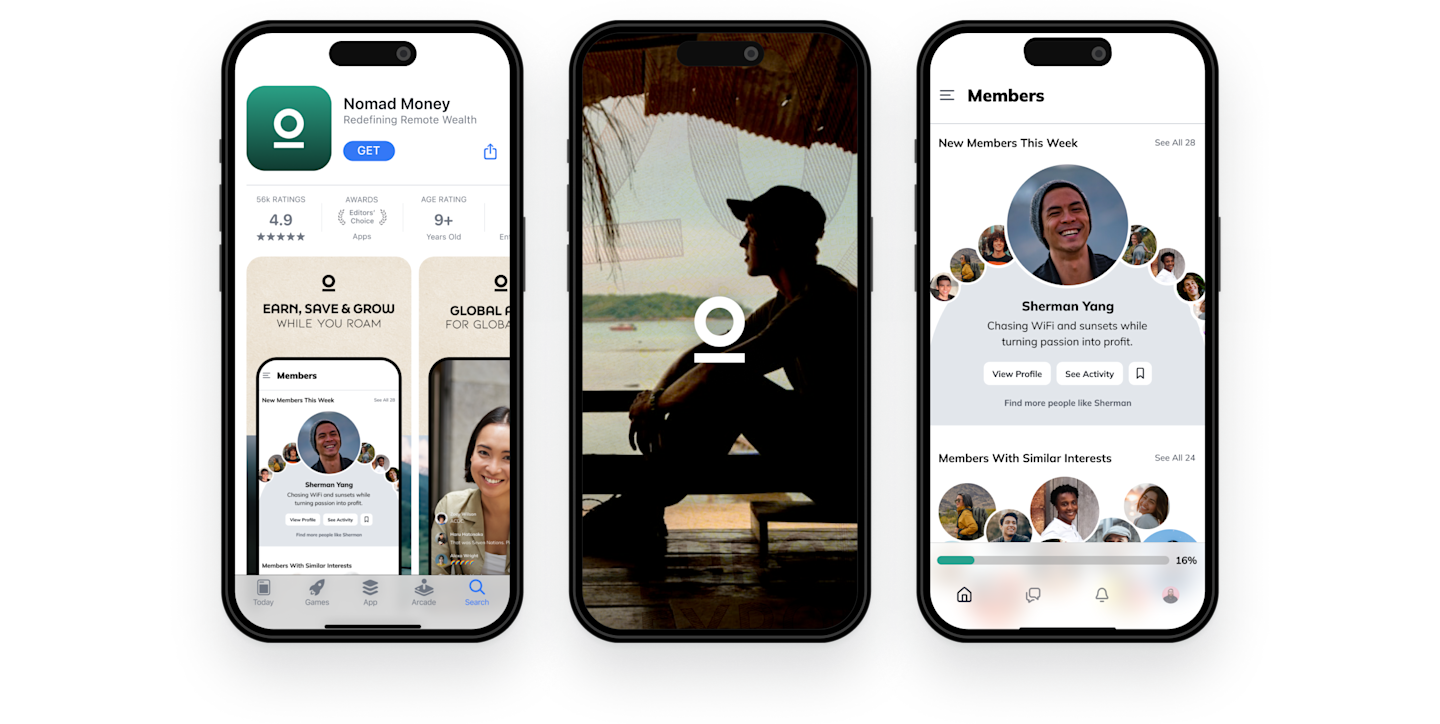
Obviously “an app” is a pretty huge category, since there are apps for almost everything. But apps are a unique business opportunity, since there are ways to monetize them that are different from monetizing other digital businesses. Apart from a few online games like Roblox, it’s not common to buy goodies and digital trinkets with online sites. But in-app purchases are a thing of their own–most apps offer things like in-app purchases and upsells. It could be the new tractor in Farmville or a boost in a language-learning app. Then–of course–there are app sales, in which people pay for premium apps.
If you’re determined to build an app and bring value to people–whether it’s a game, a calculator, or something else–you have a tremendously scalable business.
8. Subscriptions
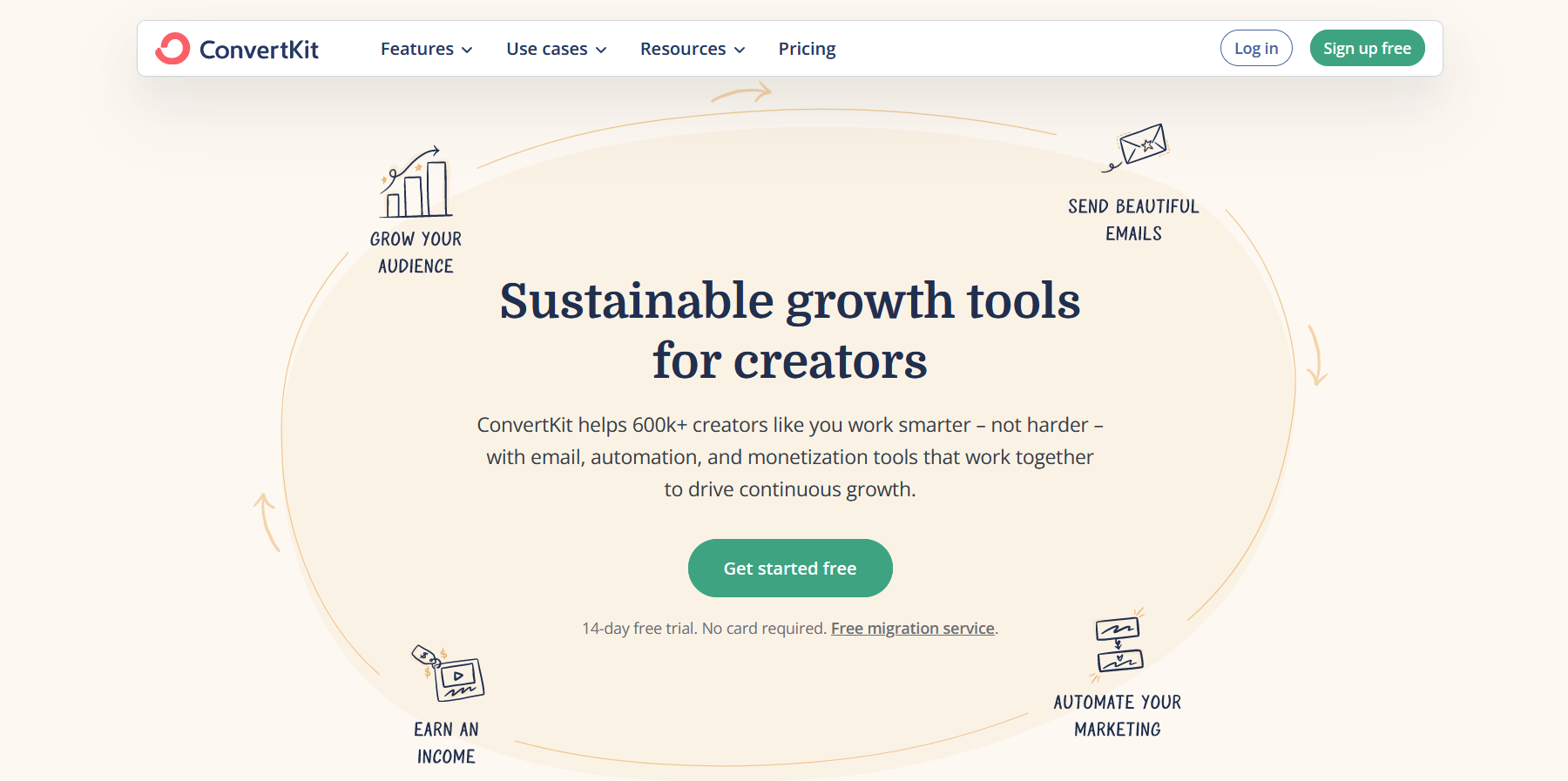
Subscription businesses are scalable too. And a subscription business could take different forms:
A premium content business. For example, a newsletter is a subscription business. People pay every month and get access to content. It’s the same principle as Netflix, but on a (usually) smaller scale.

A monthly product. Some brands have built incredible subscription businesses around things like the wine, or chocolate, or razors, or soap of the month. These businesses are scalable! Even with shipping a physical product, you don’t need storefronts–you could probably get away with a landing page for online purchasing and fulfillment.
9. Affiliate marketing
Affiliate marketing is another scalable business. It was once associated with blogs–where people would click a sponsored link and the blogger earns a commission. And there are still blogs that are killing it, but affiliate marketing has expanded to fit different kinds of influencers and content creators.
For example, a YouTuber who’s monetizing with views is limited in growth. But if your YouTube channel naturally fits with a product, why not use affiliate links? The photographer Peter McKinnon does it with sponsored camera gear. So do gardeners, and home reno-ers, and mountain bikers, and crafters, and all sorts of people teaching on YouTube. Or how about the YouTuber Mark Rober, who started a high-value partnership with Crunch Labs? They make kits to help teach kids engineering.

Whatever platform you create content on, if there’s a natural fit for affiliate marketing, it might be a great way to scale your business. But be warned–trying to cram affiliate links into content only works if there’s a natural fit. Trying to sell your audience unrelated affiliate products is a recipe for a whole bunch of unsubscribes.
10. Platform building
We covered software above, but what about building your own platform of some kind? Maybe it’s a matchmaking platform for dog sitters to find dog owners. Maybe it’s an online marketplace for cyclists. Whatever type of platform you build, there could be a market for it. And whether you charge an access fee, monetize with ads, or take a transaction fee, it’s a scalable business.
11. Virtual conferences
Virtual events and conferences aren’t a business a lot of entrepreneurs think of. And that’s a shame. Because there’s a ton of scalability potential here.
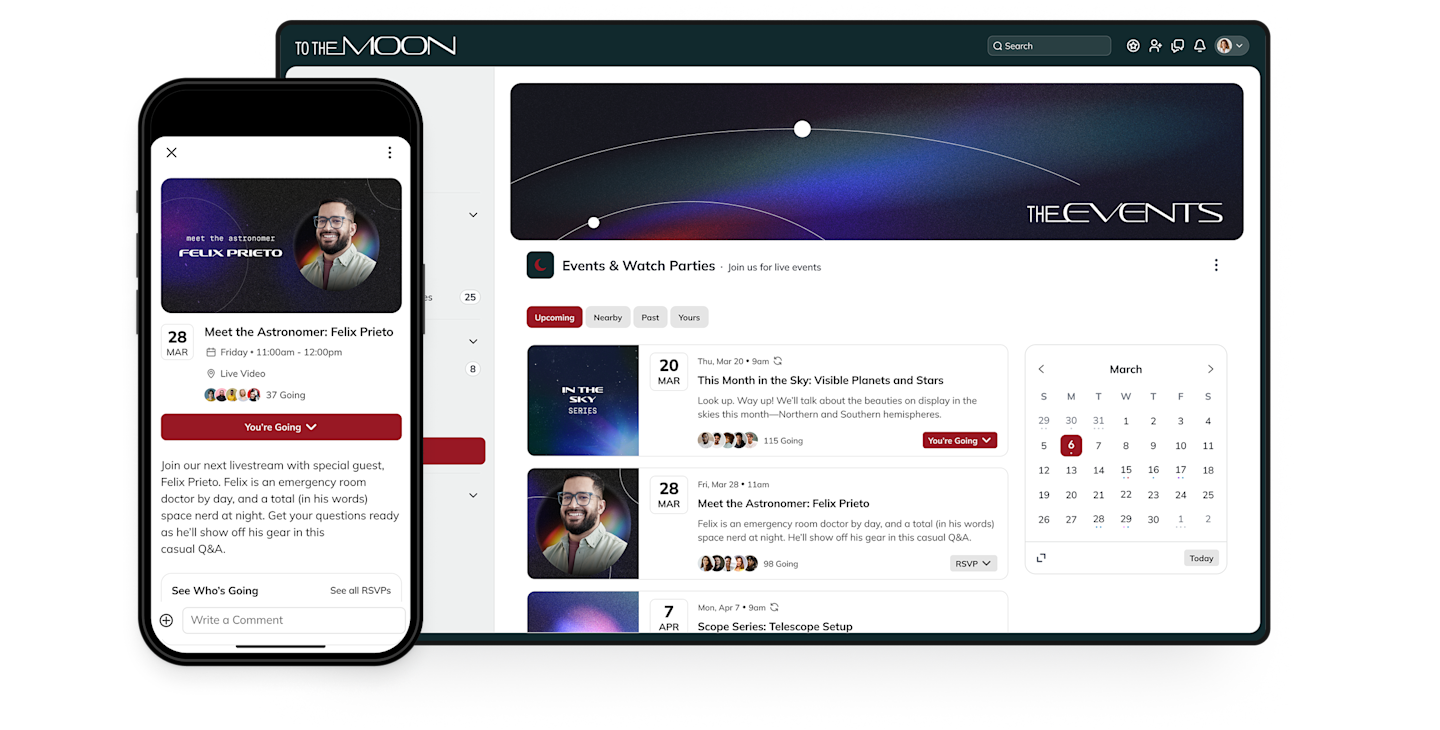
When virtual events combine either high value or high entertainment (or both), people are willing to pay and show up. And with none of the overhead of an in-person conference–no hotels to book, venues to oversee, or catering–you can start a conference business for a fraction of the cost.
Choose a virtual conference platform that lets you build and scale, pick a clear niche to run events in, and start building!
12. Customer service AI
Chatbots have been around for a long time, but the rise of AI has made it easier than ever to automate customer experience. And companies would pay for help with this. Creating a business that helps businesses automate and scale with AI has a lot of potential.
13. Marketing tools
Every brand needs marketing. And that means that every brand needs marketing tools. So if you know how to build marketing tools–whether it’s social sharing tools, LinkedIn algorithm busters, or the next big email marketing hack, you could be in demand.
14. AR experiences

Finally, let’s talk about VR and AR (virtual and augmented reality). The markets for these businesses are just getting started, but hold amazing promise for AR filters and apps. Or how about virtual experiences–like on the platform Roblox, which paid out $624 million to creators in 2022?
AR and VR are ramping up and we haven’t even begun to see their full potential. So if you’re an early adopter who wants to build games, artificial worlds, filters, and other things for the virtual reality market, the time is right.
Ready to start?
If you’re ready to start building a scalable digital business, come build with Mighty! Mighty makes it ridiculously easy to build communities, courses, and live events.
You can start with Mighty Networks–G2’s number one community platform–and grow your business. With discussion forums, a course platform, built-in events, Kit email integration, and chat & messaging, it’s the perfect place to grow a scalable business. And you can charge in 135 different currencies and build and sell memberships, bundles, and more.
You can try it free for 14 days–no credit card required.

FAQs
1. What are some AI tools to help scale a business?
There are so many good ones!
Here are some quick ideas.
Scaling customer service with chatbots: Zendesk AI or Drift
AI driven CRM intelligence: Salesforce Einstein or Hubspot AI
Email marketing with AI: Klaviyo
Automations and software integrations: Zapier or Microsoft Power Automate
AI-driven business analytics: Tableau or Power BI
AI images and marketing materials: Canva or DeepAI
AI boosted communities and/or communities: Mighty Networks
And of course, there are lots of different AI prompts you can run through your favorite LLM to help scale your business! We have some great ideas for managing a community with AI.
2. Growth channels that scale
If you’re scaling a business, you need to find the right channels that work for you. Here are a few ideas for scalable growth channels:
Content marketing: Reach multiple people at once from posts or videos. Make great content that builds trust and educates potential customers.
Search Engine Optimization (SEO): Get found in search engines, whether it’s as a local Google business or top web results for your niche. TikTok and YouTube also work as search engines.
Paid search: Pay for results to get your brand to the top of Google search (or another search engine).
Paid social: Pay for social media ads or sponsored posts to get in front of audiences.
Email marketing: If you have an existing email list (or are building one), email subscribers offer a high-conversion.
Produce-led growth: Depending on the product, you could offer a freemium model so people can try before buying.
Affiliate or partner programs: You can incentivize others to sell your product for you.
IP marketplaces or agent representation: Find companies or brands to license a product or IP to.
Franchising: Find others to run businesses modeled on yours.
3. Hiring & outsourcing for leverage
When to hire contractors to help you scale:
You want someone with mastery of a specific skill you don’t need full time (e.g. a bookkeeper, a graphic designer).
You need to validate your business model in the earliest phases.
You need a certain job done part-time (e.g. scheduling social media posts).
When to hire employees to help scale:
Your business has core, ongoing work from week to week.
You have predictable revenue to cover fixed costs.
You want to create a stable knowledge base and customer experience.
You want to build company culture and have people who buy-in to the vision
4. What type of business is the most scalable
Obviously, our vote goes to online businesses and products: SaaS, Communities, Courses, etc. These have low overhead, can be replicated almost indefinitely, and grow well.
But there’s a caveat. Going mass market can mean mass competition. Obviously having a great niche or competitive advantage can help with this, but you’ll need to find the unique selling point you have.
5. How can I tell if my market is big enough to support growth?
Are there competitors in your market already? Often the most scalable business ideas aren’t things nobody else is doing, but things you can offer an improvement to.
Do your research. Industry reports, government data, research studies. Try to get a sense of what the entire market might look like (be realistic).
Is that market growing, stable, or declining? What assumptions do you have to make for your growth rate to work?
Make sure you understand the trends in your niche and area of expertise, not the market as a whole. For example, just because online courses are a billion-dollar business it doesn’t mean that a specific online course niche is that big.
Think about whether your short-term growth is enough. For example, if you start a membership and it has 100 members at launch, is that okay? Sure you can grow to thousands, but make sure you’re okay with the starting point.
6. Which low-cost tools can automate customer onboarding, billing, and support from day one?
Look for integrated tools on the platforms and software you already use. Most modern platforms have some integrations built in. For example, on Mighty, we’ve built on tons of AI boosts and automation that makes it easier to scale your engagement and membership management. With new member onboarding and easy plan management, it gives a lot of flexibility for billing and support.
Whether you’re looking for a CRM, an ecommerce store, or a course platform, look for features like this.
7. What are the biggest mistakes founders make that stall scalability after initial traction?
Here are some common traps founders get into that stops their businesses from scaling:
Hero complex: The fact that a founder does everything at the beginning doesn’t mean that’s a sustainable way to grow. As we said above, founders are often the bottleneck to their own growth. Growth means hiring, training, and delegating. And then it means stepping back and trusting the people you hire.
Identity crisis: Some founders can feel guilty about transitioning from someone who doesn’t “do all the work” toward someone who is more of a decision maker and strategist. This is especially true for founders who are either really prominent in the brand (e.g. an influencer business) or else who have a special expertise (e.g. “Nobody can do X like me!”).
Building systems first: Systems are awesome, but spending too much time building systems before you even know what needs to be systematized could be a recipe for failure.
Saying yes to everything: When partnerships, new features, or new markets knock on your door, it’s easy to think you need to say yes to every opportunity. Actually, that’s a great way to get sidetracked. Be selective as you stay focused on growth.
Technical debt: Getting stuck with systems and technology that doesn’t scale, or over complicated “tech stacks” that require different pieces of software to do what one would do.
8. How do network effects work, and can I engineer them into a membership or marketplace idea?
Network effects happen when a product or service becomes more valuable as more people use it. Here’s a simple example. Email wasn’t a particularly valuable invention when ten people had it. It becomes valuable when everyone does. We’ve seen massive, product-led growth from brands like DropBox for the same reason. When people needed to sign up for DropBox to get a file shared with them, it grew quickly.
Communities have network effects, because the value of a community explodes as membership grows. A community with 10 members isn’t much different to run than a community with 100 members, but all of a sudden you have way more people commenting, liking, and sharing. It makes the community more valuable to be in–without extra work from the founder.
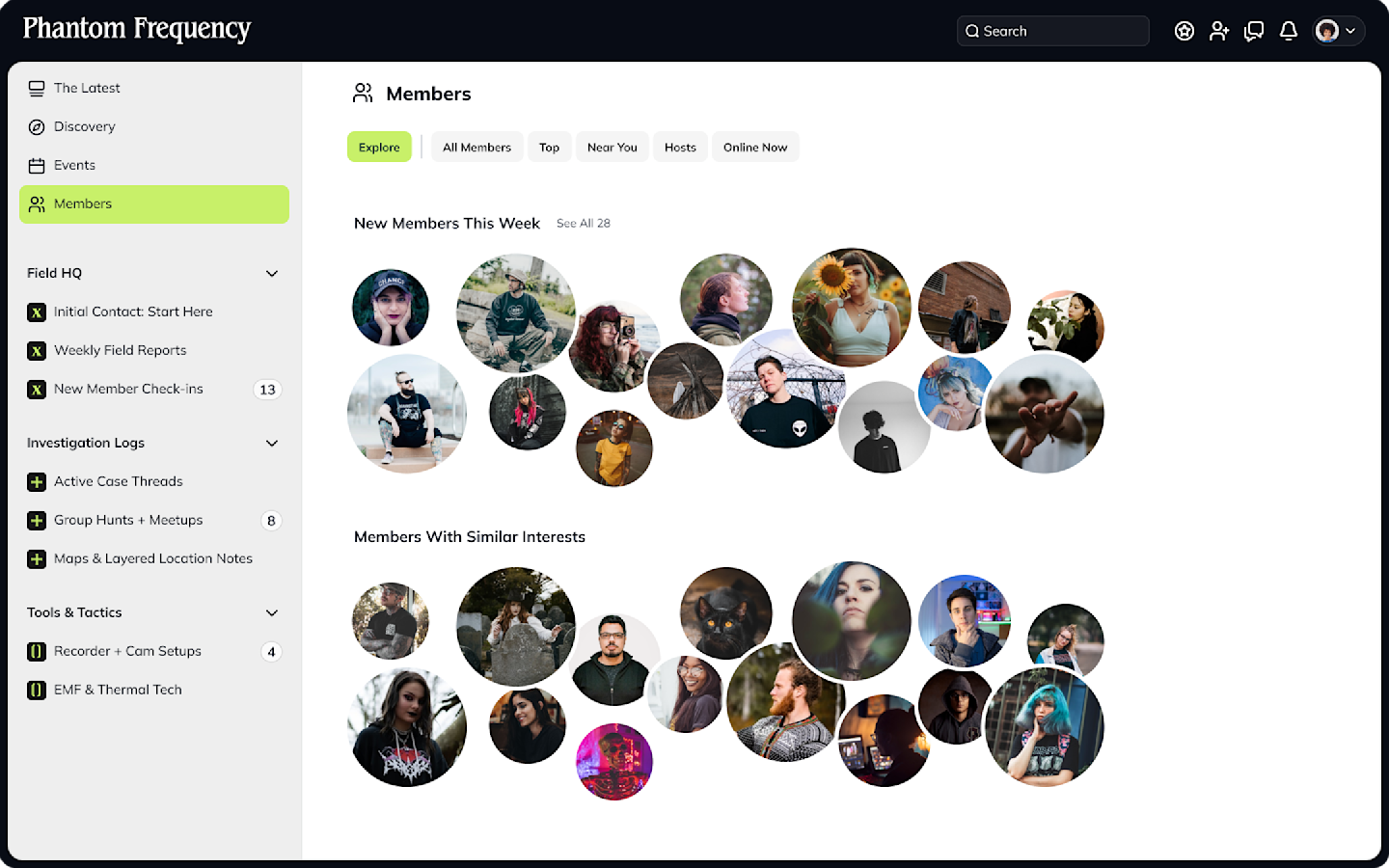
To create your own network effect, consider how your product or offer will be used. Does it encourage people to collaborate? To invite others? Does it get more valuable the more users that join it, just like the telephone network or Uber or Airbnb?
We have a full article on network effects if you want to read more!
Ready to start building your community?
Start a free 14-day trial to explore Mighty—no credit card required.
More like this
Join Mighty Community
Learn the principles of Community Design™ (and see them in action) alongside thousands of creators and entrepreneurs. It's free to join!

Online Courses
Creating a Course
Teaching a Course
Course Platforms
Selling a Course
Communities & Memberships
Community Platforms
Managing a Community
Building a Community
Growing a Community
Monetizing a Community
Content Creation
Creators & Entrepreneurs
Monetization
Content Creation
Starting a Business
Website Builders
Creating & Managing a Website
Events
Event Platforms
Hosting & Marketing Events
Branded Apps
Creating a Mobile App
Coaching Apps
Community Apps
Coaching
Mastermind Groups
Starting a Coaching Business
Coaching Platforms
Filter by Category
Online Courses
Communities & Memberships
Creators & Entrepreneurs
Events
Branded Apps
Coaching
Start your free trial
14 Days. No Credit Card Required.





















